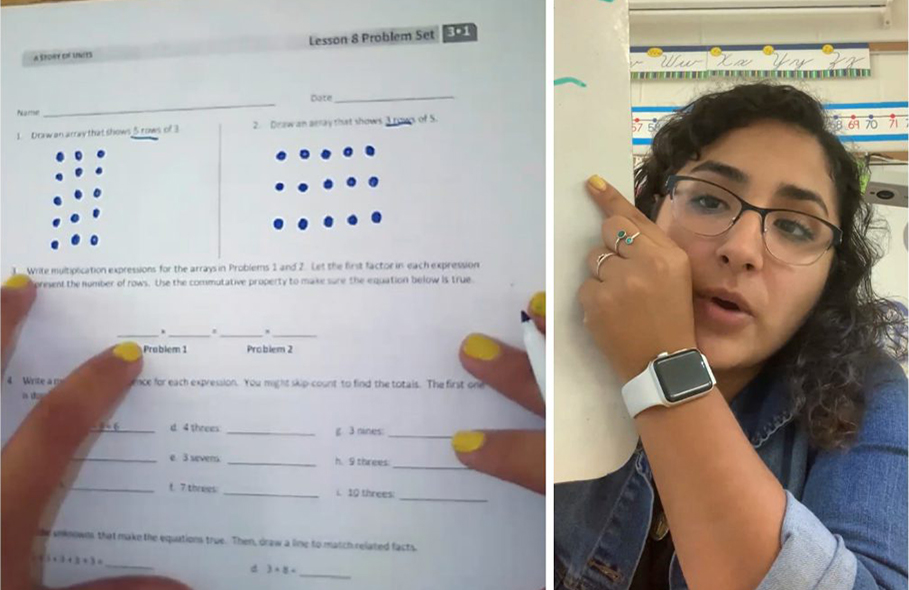Unmotivated Students, Confusing Requirements: Illinois Student Teachers Are Struggling
by Sidney Madden, Illinois Public Media / Jan 11, 2021

Nancy Latham, executive director of the Council on Teacher Education at the university, gives insight on factors that are creating a less-than-ideal pre-service experience for prospective teachers in Illinois.
In her virtual classroom last fall, Erika Jimenez struggled to teach her third graders how to read an analog clock in English. In person, the lesson would have been challenging for the predominantly Spanish-speaking class. Over Zoom, the students were visibly frustrated. Some even cried.
But those were just the students paying attention. Jimenez knows some of her kids play Xbox or are on their phones while in class. Others have younger siblings distracting them from instruction.
Jimenez, a senior studying bilingual education at Illinois State University, is frustrated: She has to troubleshoot technical difficulties while getting students to focus on the course material.
While some state requirements for teacher licensing were changed due to the COVID-19 pandemic, the switch to remote learning for student teachers is still challenging. Many also worry they aren’t receiving the experience or skills needed to run their own classrooms.
Meanwhile, an increasing number of Illinois teachers are retiring, exacerbating the state’s teacher shortage. Additionally, student teachers of color are trying to enter an industry where they make up less than 20% of the workforce and can face additional licensing barriers due to the associated costs. And student teachers are trying to navigate changing requirements and working with unmotivated students. While an influx of new teachers are sorely needed across Illinois schools — even more so now than before the pandemic — many student teachers are struggling to navigate both changing requirements and working with unmotivated students.
“Honestly, the most classroom management that I’ve learned this semester has to be just muting our kids on Zoom, and that’s not how it is in the classroom,” she says.
The Illinois State Board of Education requires teachers graduate from an accredited program and participate in approved clinical experiences, which include a semester of student teaching in person, virtually or some combination of both.
Jacob Dunskis student taught this past fall at Carlinville High School. Dunskis, who just graduated from Blackburn College — a liberal arts college located about 50 minutes south of Springfield — spent the first half of the fall semester teaching literature in person to ninth and 10th grade students. He says the high school was able to open in the first place because of its small size and access to resources.
In the latter half of the semester, the school switched to virtual instruction because of rising COVID-19 cases in the surrounding community. When school went online, Dunskis says his students were unmotivated. Many didn’t attend class, he says, and he struggled to get responses to emails. He says a larger percentage of his students failed than normal.
Dunskis says he knows his students have a lot going on, but “to see students just not participating in their education on such a massive scale has been incredibly disheartening.”
While student teachers struggle to engage their pupils remotely, they also have to meet the state’s standards for licensing. ISBE changed the assessment portion of the licensure process due to the pandemic, which includes content tests for student teachers and the Teacher Performed Assessment (edTPA).
Content tests assess prospective teachers in their respective academic areas of expertise, says Nancy Latham, the executive director for the Council of Teacher Education at the University of Illinois at Urbana-Champaign. Before the pandemic, the content test had to be passed before one could begin student teaching.
Read the full story from WIILL and Illinois Public Media...